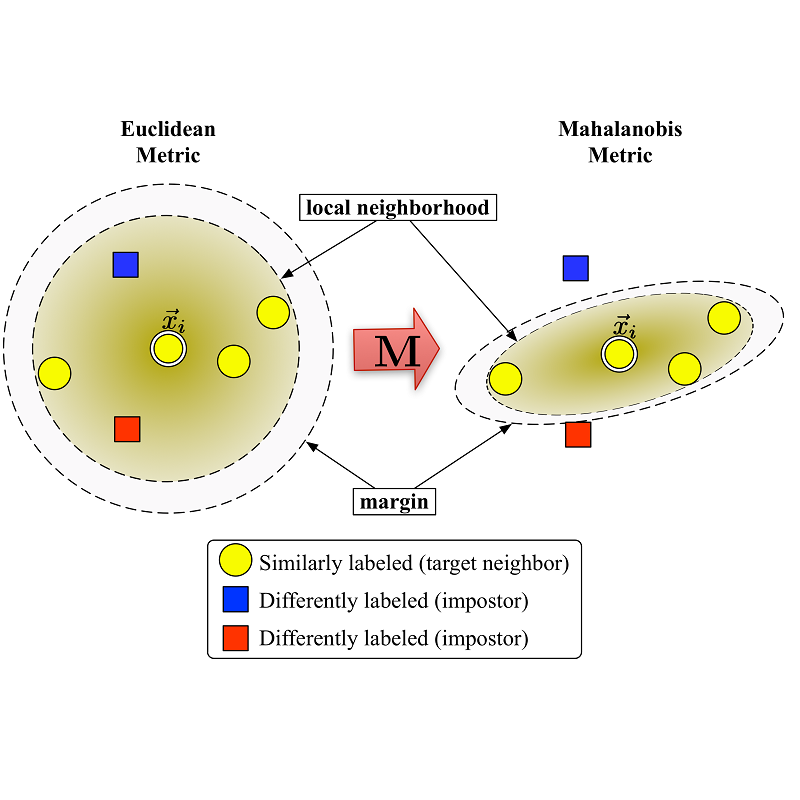In collaborative filtering, distance metric learning has been applied to matrix factorization techniques with promising results. However, matrix factorization lacks the ability of capturing collaborative information, which has been remarked by recent works and improved by interpreting user interactions as signals. This paper aims to find out how metric learning connect to these signal-based models. By adopting a generalized distance metric, we discovered that in signal-based models, it is easier to estimate the residual of distances, which refers to the difference between the distances from a user to a target item and another item, rather than estimating the distances themselves. Further analysis also uncovers a link between the normalization strength of interaction signals and the novelty of recommendation, which has been overlooked by existing studies. Based on the above findings, we propose a novel model to learn a generalized distance user-item distance metric to capture user preference in interaction signals by modeling the residuals of distance. The proposed CoRML model is then further improved in training efficiency by a newly introduced approximated ranking weight. Extensive experiments conducted on 4 public datasets demonstrate the superior performance of CoRML compared to the state-of-the-art baselines in collaborative filtering, along with high efficiency and the ability of providing novelty-promoted recommendations, shedding new light on the study of metric learning-based recommender systems.
翻译:在协同过滤中,距离度量学习被应用于矩阵分解技术,取得了有希望的结果。然而,矩阵分解缺乏捕获协作信息的能力,这已经被最近的工作所指出,并通过将用户交互视为信号来提高。本文旨在找出距离度量学习与这些信号模型之间的联系。通过采用广义距离度量,我们发现,在信号模型中,更容易估计距离的残差,这指的是用户到目标项和另一个项的距离之间的差异,而不是估计距离本身。进一步的分析也揭示了交互信号的归一化强度与推荐的新颖性之间的联系,这在现有研究中被忽视了。基于上述发现,我们提出了一种新颖的模型,通过建模距离残差来学习广义用户-项距离度量,以捕捉用户偏好中的交互信号。所提出的CoRML模型通过引入新的近似排名权重进一步提高了训练效率。在4个公共数据集上进行的广泛实验表明,CoRML相对于协同过滤中的现有基线具有更优异的性能,并具有高效和提供新颖性促进的推荐能力,为度量学习基础的推荐系统研究带来了新的视角。

